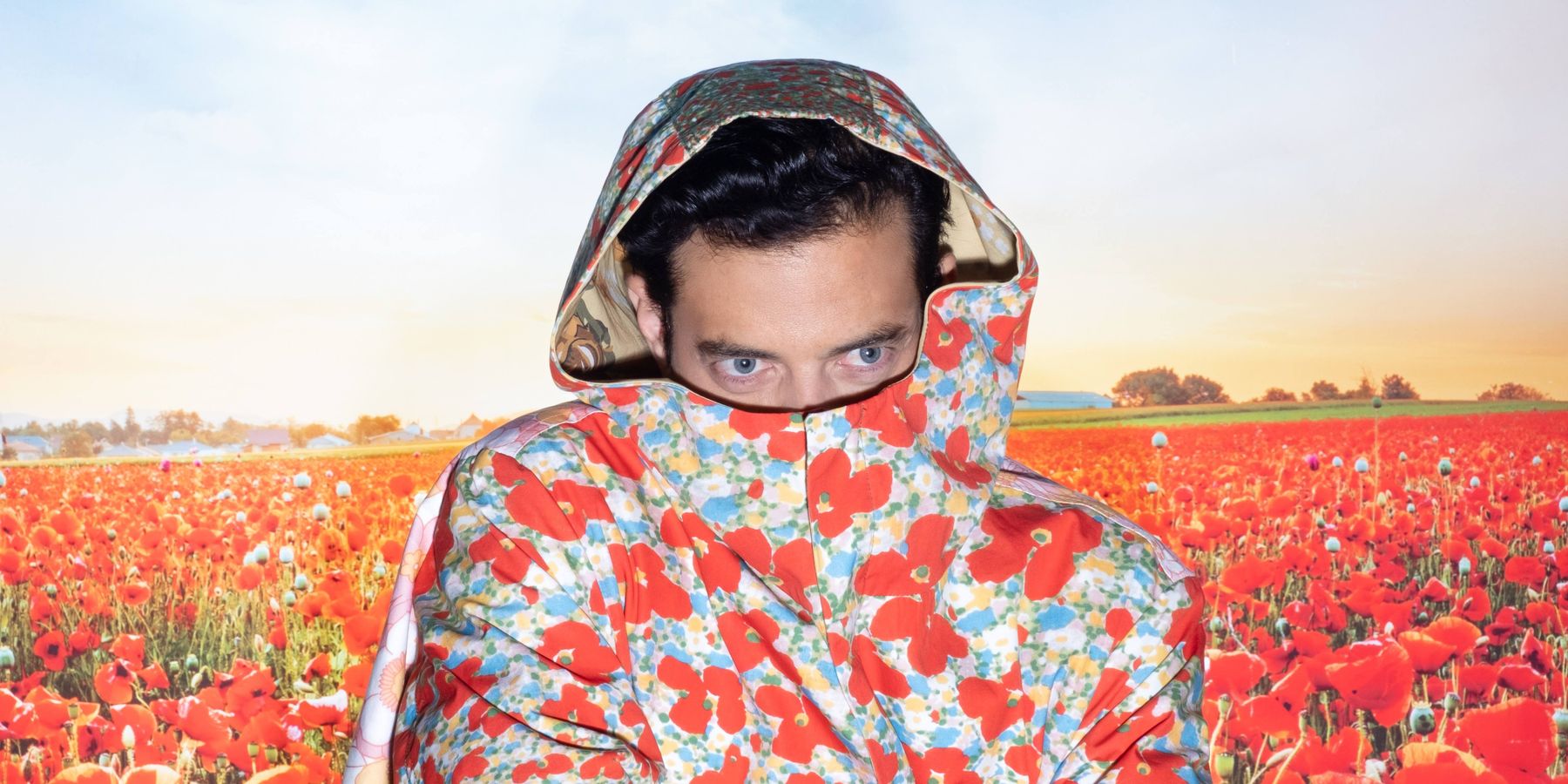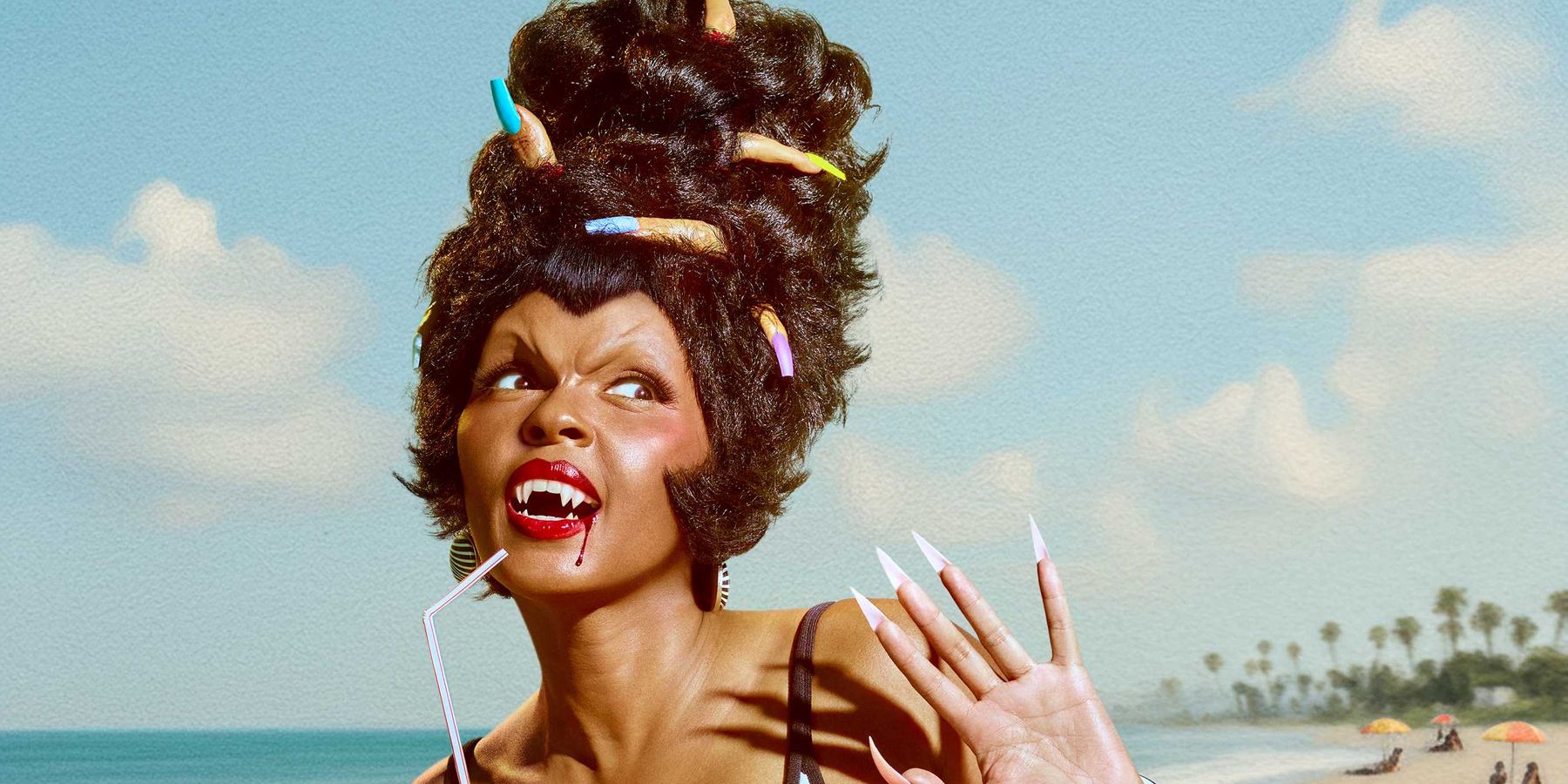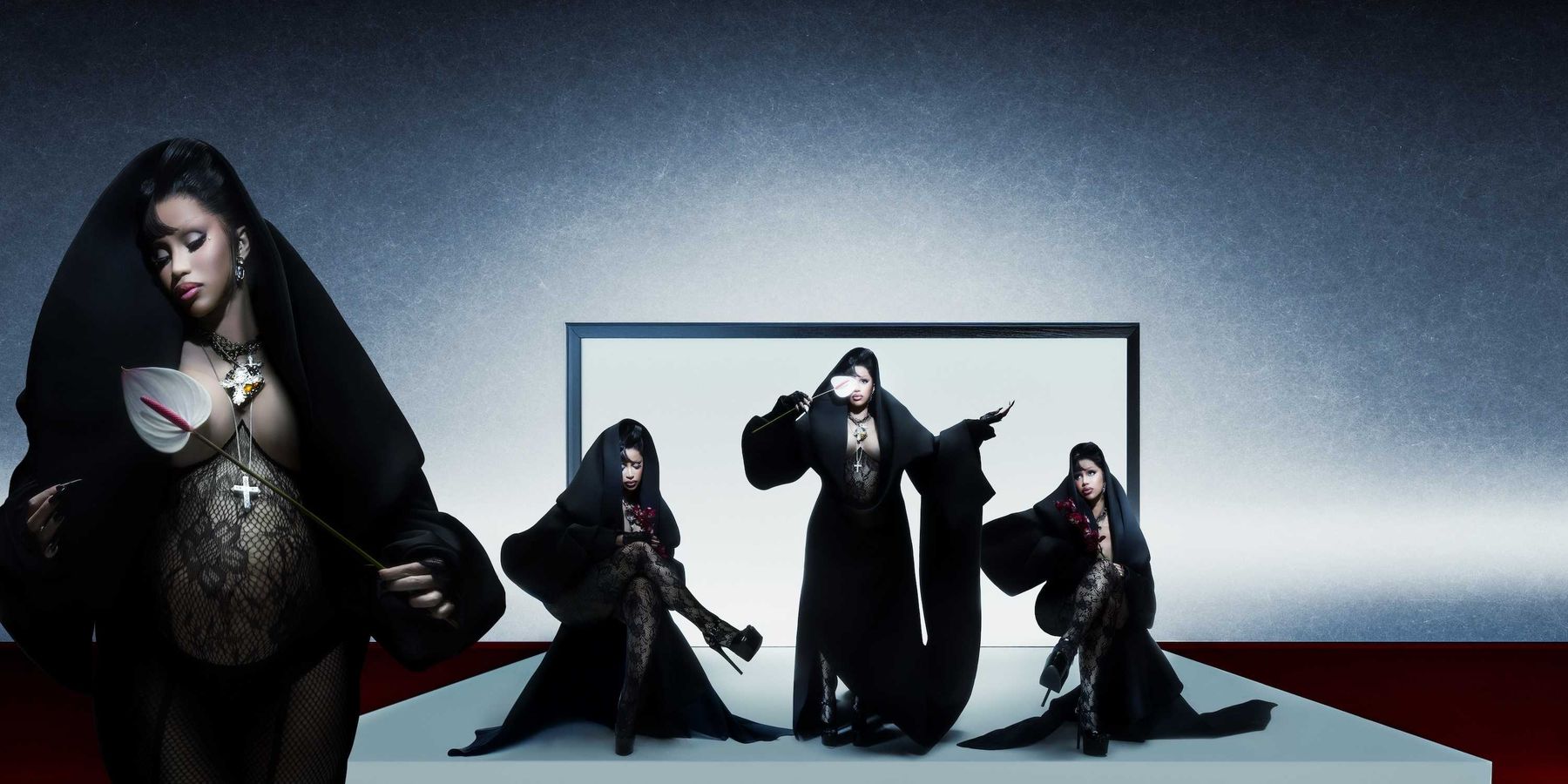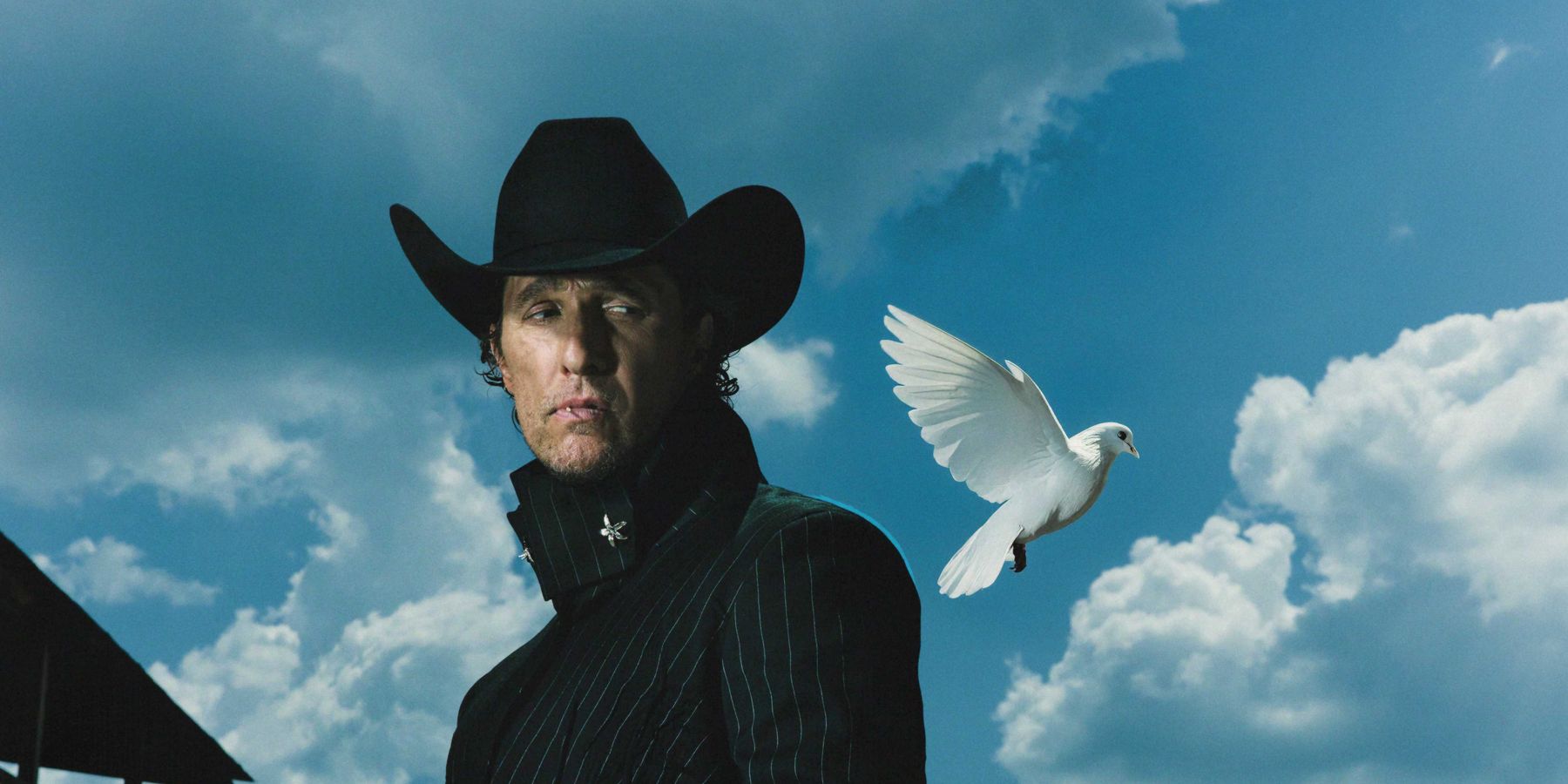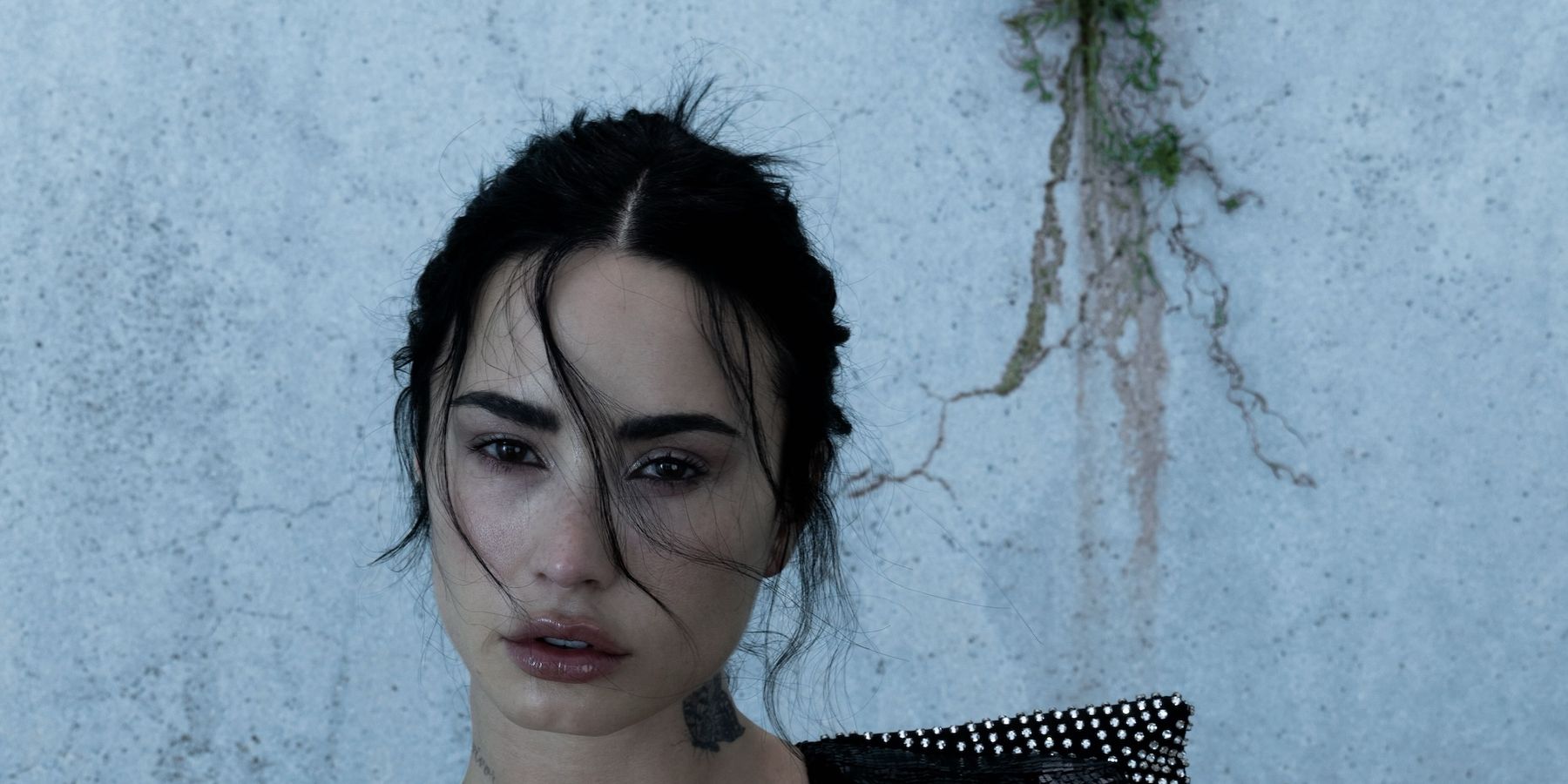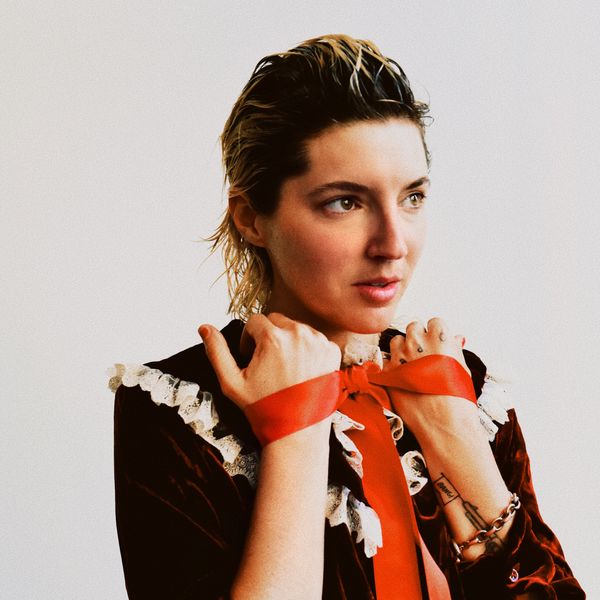
Caroline Rose Practices 'The Art of Forgetting'
Apr 03, 2024
Caroline Rose is no stranger to heartbreak. Their latest album The Art of Forgetting takes the feeling head-on, squaring up to all the raw and harsh feelings that come in the aftermath of losing someone you love. It's impeccably written and, unfortunately, relatable, laying plain the desperation and devastation of love gone wrong.
Though Rose’s calling card has always been writing with a wink and lyrics with a big dose of satire to help the medicine go down, this time around she pulls back the curtain, revealing a collection of honest, confessional tracks. The album is a result of an intense emotion Rose felt, as if she was going to “explode” if she didn’t get a myriad of feelings out into the world, musically. “When I was younger I had like all these insanely big emotions and didn't know what to do with them,” she tells PAPER. “That's when I would channel my emotions into music. But over the years, it's changed. My relationship with music has changed and this felt different from the way it has been.”
Since the 2018 release of their second album, the critically-acclaimed indie-pop trip Loner, Rose had been focused on exploring sounds and themes through textures and characters, telling stories that didn’t necessarily involve them. She released Superstar, a story of an anti-hero trying to make it Hollywood and an exaggeration of herself. The album came packed with the same notable sense of humor in their previous album, but with less fanfare, thanks to a release date that coincided with the first weeks of the pandemic.
With The Art of Forgetting, however, Rose decided to strip back the laughs and characters and put themself in the limelight. “I needed to express myself because my emotions were so big,” she says. “It felt more like therapy." The album’s lead single “Miami” captures this perfectly, with Rose candidly detailing the moments in their relationship where she put out (literally and figuratively) but was met by a partner who wouldn’t touch them. “I wish I could collect all of the subtle rejections/ Wrap them all up in a bow/ Say thank you, nice to know you,” she sings sweetly, before admitting: “You never knew my worth/ honestly neither did I.”
“I just sang 'Miami' as a solo performance a few weeks ago,” she says. “It makes me cry like every time makes me cry. I think in a way, putting the album out was both the most terrifying and vulnerable thing I've ever done, but it was actually the most healing thing I've ever done.”
Ahead of her April 5 show at New York City's Brooklyn Steel, Rose talked to PAPER about breakups, feelings too big for words and "building a world" each time they make an album.
You've said that The Art of Forgetting came about very organically, which was different for you in comparison to other albums. Why do you think that was? What was that experience like in the studio?
Yeah, I mean it's not that the music ever feels forced, that actually always feels very natural. It comes so naturally to me and is so fun. But it was the process of making an album — like taking the songs and turning them into an album — that felt really effortless. I just knew what it needed to be at a certain point. This doesn't always happen. When I was writing the material for this album, I didn't even think it was going to be an album, because I was like, "Oh, this doesn't sound like my other stuff." It's all really personal stuff. But at a certain point, I had just kept writing and writing and it all made sense. I was like, "Oh, this is a story of my life right now this is what exactly what I'm going through." Each song is reflecting on this moment in time. There was no fighting; I just knew what it needed to sound like and knew what it needed to be. When I made Superstar, it was my first time producing a record entirely by myself. I learned a lot from the process, because there are certain things that can drive you crazy. I was like, "I must enjoy this time." I took my time doing it.
Do you feel like that impacted the sound? Your desire to enjoy it and take your time?
Yeah, I think so. I had separated [the process into] these three stages. The first stage would be just writing the songs, just perfecting the songs. So if I ever got up there with a piano or a guitar, and I played them solo or with one other person, they would feel really solid. You can just do that anywhere you bring a guitar, drive up to the top of the mountain somewhere and work on songs. That's so freeing and liberating. Then the next part was tracking the audio, and then manipulating the audio.
I had heard this song by the artist The Floating Points. He has a song called "Falaise.” I was obsessed with this song and what he did with it, because he took a string quartet and then modulated it in real-time. It's as though you're listening to this beautiful organic piece of music that players are playing live, but then all of a sudden, it's chopped and manipulated and time-stretched in real-time. It makes you feel sort of dissociative, where you're like, Oh, I hear this, and it's beautiful, and I understand it, and then all of a sudden, something comes in that makes you scratch your head, like, What is going on here? Why does it feel like my reality is being splintered? I was obsessed with the idea of taking these songs that I had written on acoustic instruments and then chopping them or just manipulating them enough that it felt somewhat unsettling in the sound. So, there was a lot of experimentation in the second stage of the album. Then the third stage was just taking all everything that I had done,and editing.
Sounds like you were able to get really imaginative and weird and experiment. Is that something you felt you could do on previous albums?
I feel like I just never care. If I feel compelled by an idea, I'm like, Oh, I must see this through. That's the part that comes so naturally, because I'm approaching music in a way where it's not just music. I can see it. I can see how the videos are gonna look, I can see how the color palette is going to look. I'm not just hearing the note or the melody of the vocal line. I'm hearing all the parts, and it feels like I'm building a little world each time I make an album. Sometimes I can shoot myself in the foot a little bit, because each time I put out an album, I'm putting out a mini world that I've been living in for however long it takes to make the thing and put it out. Each time it's going to be a little different. A lot of a lot of times people want a McDonald's hamburger. They want to go into McDonald's and know that the hamburger will always be fine. I find that so fucking boring. Not for me. I just have to do my thing. I like the theatrics. I like acting, I like designing. I like the whole set design, when you step into the room to go see us live. This time, I was feeling like this is my sad little world right now, let's lean in. This is real and this is what I'm feeling. Maybe people will relate to it. And maybe they won't, and that's fine either way.
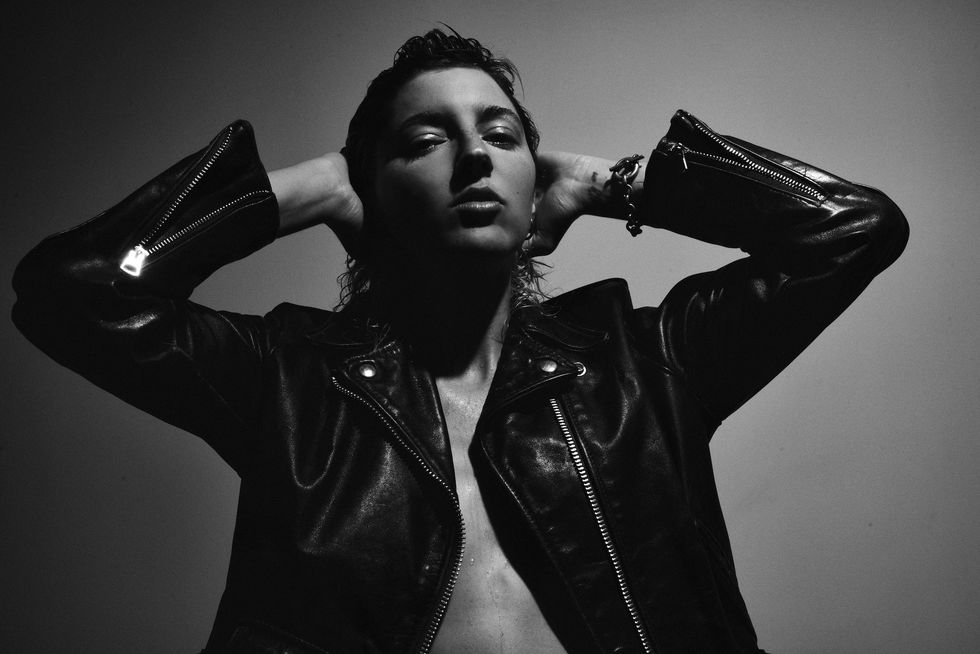
What was the moment in the studio when you realized what world you were building?
I had written a bunch of songs that didn't end up on the album. I had all these feelings and I was just trying to get them out without being so incredibly depressed. I needed to express myself. I was house-sitting for a friend, and I was sitting on the porch, and I started playing this song that ended up being "Love / Lover / Friend," and it happened really naturally. I was just noodling on the guitar. The whole thing was written in one sitting, and at the end of it I felt like I was at the beginning of a story. I remember thinking, "This is too good not to put out. It sets the scene for something." That was the first moment that I was like, I don't know what I'm going to do, but some of this should come out. Then each song started telling another little chapter in a story. It felt like it was the beginning of this pre-written story. The song was originally called "Loverboy."
Love that. Why'd you change the name?
I don't know. I think because when I first started writing it, I was sort of laughing about how sad I was, I was really just in a dark place. And I know things are bad when I lose my sense of humor. I was right on the verge of that. I'd have days where I'd be like, Wow, this is really bad! But then I'd have other days where I'm sort of laughing at myself about just how pathetic I sound and feel.
I was just talking to someone about that — how when things are really bad, it's comical.
You have to laugh. Because if you can't laugh at your situation, that's somehow the saddest. That's rock bottom. Sometimes I'd be like, Wow, is this rock bottom, and then I'd be like, Well, at least the views nice from here. I could still laugh at the situation and be out of myself. I thought "Loverboy" was a funny title for just how pathetic I was at the time.
I did want to ask about your song "Jill Says," which is named after your therapist. Does she know she made it on the album?
She knew early on, way before it came out.
What was her review?
Oh, she loved it. I was a little nervous because I didn't really ask her if she wanted to be in a song. But I figured it's not like I'm giving intimate details about her. I'm really just talking about my my breakup to her.
How are you preparing for tour and singing these vulnerable songs live? What are you hoping for these performances?
I don't want to do exactly what we did last time, because one it was too emotionally difficult. I can do it, but I want to enjoy it more. The point was to tell the story of the album, and so we're playing the album from start to finish and have a whole experience around the album. That's what I like doing. I'm like a little world-builder. I love the idea of somebody walking into the room to be transformed, and when the show starts, you're engaged. I'm telling this story. It's going to be different this time, just because I've been in a different place. I've been in a different headspace. I've been looking back on my past work and being appreciative of what I've done so far. It feels like a retrospective on this new album.
Photography: Shervin Lainez
Related Articles Around the Web
MORE ON PAPER
Entertainment
Rami Malek Is Certifiably Unserious
Story by Joan Summers / Photography by Adam Powell
Story by Joan Summers / Photography by Adam Powell
14 November
Music
Janelle Monáe, HalloQueen
Story by Ivan Guzman / Photography by Pol Kurucz/ Styling by Alexandra Mandelkorn/ Hair by Nikki Nelms/ Makeup by Sasha Glasser/ Nails by Juan Alvear/ Set design by Krystall Schott
Story by Ivan Guzman / Photography by Pol Kurucz/ Styling by Alexandra Mandelkorn/ Hair by Nikki Nelms/ Makeup by Sasha Glasser/ Nails by Juan Alvear/ Set design by Krystall Schott
27 October
Music
You Don’t Move Cardi B
Story by Erica Campbell / Photography by Jora Frantzis / Styling by Kollin Carter/ Hair by Tokyo Stylez/ Makeup by Erika LaPearl/ Nails by Coca Nguyen/ Set design by Allegra Peyton
Story by Erica Campbell / Photography by Jora Frantzis / Styling by Kollin Carter/ Hair by Tokyo Stylez/ Makeup by Erika LaPearl/ Nails by Coca Nguyen/ Set design by Allegra Peyton
14 October
Entertainment
Matthew McConaughey Found His Rhythm
Story by Joan Summers / Photography by Greg Swales / Styling by Angelina Cantu / Grooming by Kara Yoshimoto Bua
Story by Joan Summers / Photography by Greg Swales / Styling by Angelina Cantu / Grooming by Kara Yoshimoto Bua
30 September
Music
Demi Lovato Is No Joke
Story by Ivan Guzman / Photography by Jason Renaud / Styling by Chris Horan/ Makeup by Loftjet / Set design by Allegra Peyton
Story by Ivan Guzman / Photography by Jason Renaud / Styling by Chris Horan/ Makeup by Loftjet / Set design by Allegra Peyton
15 September
